Verbs
A verb is a word that expresses an action, occurrence, or a state of being. It is an essential part of a sentence and indicates what the subject is doing or what is happening to the subject. Verbs are an integral part of the English language and are used in various tenses and forms to convey different meanings and nuances.
Types of Verbs
There are several types of verbs, including:
- Action Verbs: These verbs express physical or mental action. Example: run, think, eat, write.
- Linking Verbs: These verbs connect the subject to a subject complement that describes or renames the subject. Example: is, am, are, was, were.
- Helping Verbs (Auxiliary Verbs): These verbs are used alongside the main verb to express shades of time and mood. Example: is, have, can, may.
- Modal Verbs: These verbs express possibility, necessity, or permission. Example: can, could, may, might, must, shall, should, will, would.
Verb Tenses
Verbs also change form to indicate the time of an action or state of being. The main tenses are:
- Present Tense: Indicates an action that is happening now or a general truth. Example: She runs every morning.
- Past Tense: Indicates an action that has already happened. Example: They played soccer yesterday.
- Future Tense: Indicates an action that will happen. Example: We will go to the beach tomorrow.
Study Guide
To master verbs, it is essential to:
- Identify and understand the various types of verbs (action, linking, helping, modal).
- Learn how verbs change form to indicate different tenses (present, past, future).
- Practice conjugating verbs in different tenses and forms.
- Understand how verbs function in a sentence and their relationship to the subject.
- Recognize and use irregular verbs (those that do not follow standard conjugation patterns).
Remember that verbs are crucial for conveying meaning and indicating the timing of actions or states of being. By mastering verbs, you will be able to express yourself more effectively in spoken and written English.
[Verbs] Related Worksheets and Study Guides:
.◂English Language Arts Worksheets and Study Guides Fifth Grade. Parts of Speech
Study Guide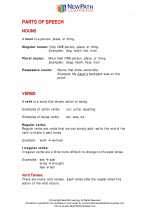 Parts of Speech
Parts of Speech  Activity Lesson
Activity Lesson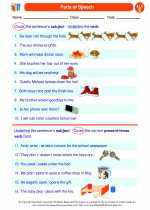 Parts of Speech
Parts of Speech  Activity Lesson
Activity Lesson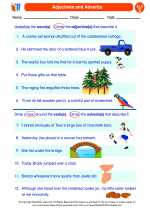 Adjectives and Adverbs
Adjectives and Adverbs  Worksheet/Answer key
Worksheet/Answer key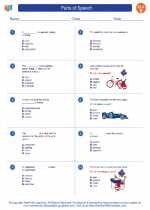 Parts of Speech
Parts of Speech  Worksheet/Answer key
Worksheet/Answer key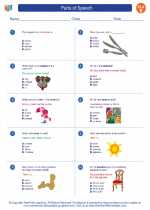 Parts of Speech
Parts of Speech  Worksheet/Answer key
Worksheet/Answer key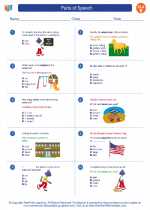 Parts of Speech
Parts of Speech  Worksheet/Answer key
Worksheet/Answer key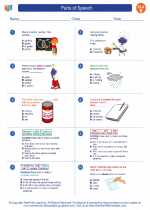 Parts of Speech
Parts of Speech  Worksheet/Answer key
Worksheet/Answer key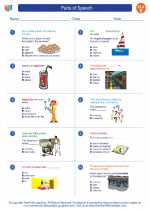 Parts of Speech
Parts of Speech  Worksheet/Answer key
Worksheet/Answer key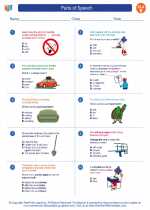 Parts of Speech
Parts of Speech  Worksheet/Answer key
Worksheet/Answer key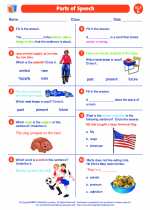 Parts of Speech
Parts of Speech 

 Activity Lesson
Activity Lesson
 Activity Lesson
Activity Lesson
 Worksheet/Answer key
Worksheet/Answer key
 Worksheet/Answer key
Worksheet/Answer key
 Worksheet/Answer key
Worksheet/Answer key
 Worksheet/Answer key
Worksheet/Answer key
 Worksheet/Answer key
Worksheet/Answer key
 Worksheet/Answer key
Worksheet/Answer key
 Worksheet/Answer key
Worksheet/Answer key

The resources above cover the following skills:
Language Standards
Conventions of Standard English
Demonstrate command of the conventions of Standard English grammar and usage when writing or speaking. [L.5.1]
Use verb tense to convey various times, sequences, states, and conditions. [L.5.1c]
Recognize and correct inappropriate shifts in verb tense. [L.5.1d]